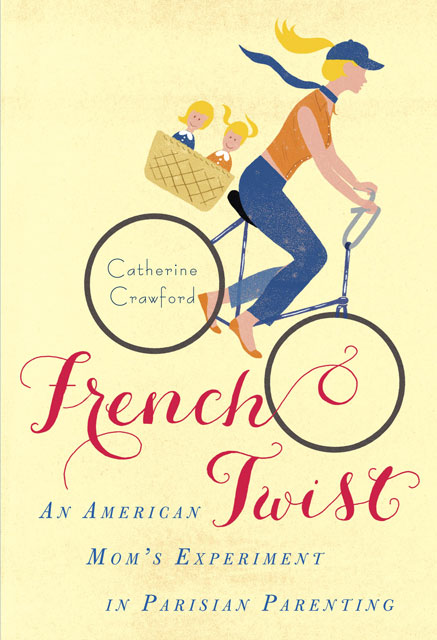 At the risk of being a traitor to my generation, I have to say: even as we have tried harder than any of our ancestors to mentor, please, and encourage our kids, we have completely lost control of them, and in the process we’ve lost control of our own lives as well.
At the risk of being a traitor to my generation, I have to say: even as we have tried harder than any of our ancestors to mentor, please, and encourage our kids, we have completely lost control of them, and in the process we’ve lost control of our own lives as well.
I live in Park Slope, Brooklyn, quite possibly the world headquarters of helicopter parents, but I have a pretty good hunch it’s happening in nearly everys middle-class neighborhood nationwide, urban or otherwise. There’s a mindset in these parts that children should be treated like adults, with all of their tastes and distastes respected.
Having grown up with twelve siblings and roughly zero of my tastes and distastes even acknowledged—“respect” was generally uttered only in the context of what the small residents of the house should have for the taller inhabitants—this sounded sweet to me. Kids are people too, after all—short, often totally unreasonable people, but people nonetheless. In practice, however, this notion was a lot less quaint.
My suspicions were realized on an early fall evening when my French friend Lucie came to dinner with her husband and two children. The Durand kids were obedient, respectful, and, when told to be, quiet. They didn’t seem to require cajoling or lengthy explanations when asked to set the table. They simply did what they were told. If they didn’t want a certain dish at dinner, they didn’t eat it, but they also were not offered a myriad of other choices. Not a single cheese stick was proffered.
After dinner, we parents were sitting around the dining room table, finishing a bottle of wine, while the kids played in the living room. A mom could get used to this, I thought, reclining—reclining!—in my chair. But the sweet, slightly inebriated reverie did not last long.
Soon enough, my younger daughter, Daphne, wanted my attention, so she did as she usually does: Namely, she started to act bananas, screaming and yelling for me.
By this point, I’d been exposed to the well-oiled Durand machine for about four hours, more than enough time to soak up some deep wisdom. So instead of doing what I usually did—tending immediately to Daphne’s (loud) calls—I looked to Lucie for advice. She leaned across the table, put a strong, steady hand on my arm, and offered an adage she told me her Parisian mother had often employed: “If there is no blood, don’t get up.”
So simple—and so excellent. Of course!
I didn’t get up. Things were loud for a little bit, and Daphne was irate at my lack of bustle on her behalf. And then, as fast as her wails had started, they stopped, and she resumed playing with the other kids.
Soon, whenever things spun out of hand in my own home, I found myself wondering: What Would Lucie Durand Do? Swallowing my pride, along with plenty of the kids’ uneaten dinners, I took things a bit further and started asking Lucie, point-blank, for advice. For instance, when Daphne decorated the length of our rather long hallway with crayon, my husband and I were unsure how to react. Time-out? Stern warning? Daph was just shy of three years old, so taking away privileges or toys wouldn’t really register much with her.
When I asked Lucie what they might do in France with this type of toddler misdemeanor, she didn’t hesitate: “You go to the kitchen and get a sponge with soap and water. Sit her on a stool and have her scrub.” I was incredulous. Scrub it all off? My husband had tried and couldn’t erase so much as a single scrawl. Then Lucie assured me that I only needed to make Daphne wash the wall for a minute so that she had a chance to understand the consequences of her action—and to see how damn hard it is to get crayon off a wall.
Often Lucie has a strategy or phrase that does wonders for any given standoff between my kids and me, but, more than that, she has a refreshing attitude: There shouldn’t be any standoffs. “After all, Catherine,” she often reminds me, “you are the chief.”
The chief—has a nice ring to it, no?
For me, Lucie is a gold mine of great advice, but she’s made it very clear that her way of parenting is natural for practically everyone in France. Here in the States, we’ve been talking and talking and talking about our kids’ feelings. Meanwhile, over there, French children don’t talk back!
Excerpted from French Twist by Catherine Crawford Copyright © 2013 by Catherine Crawford. Excerpted by permission of Ballantine Books, a division of Random House, Inc. All rights reserved. No part of this excerpt may be reproduced or reprinted without permission in writing from the publisher.

Leave a Reply